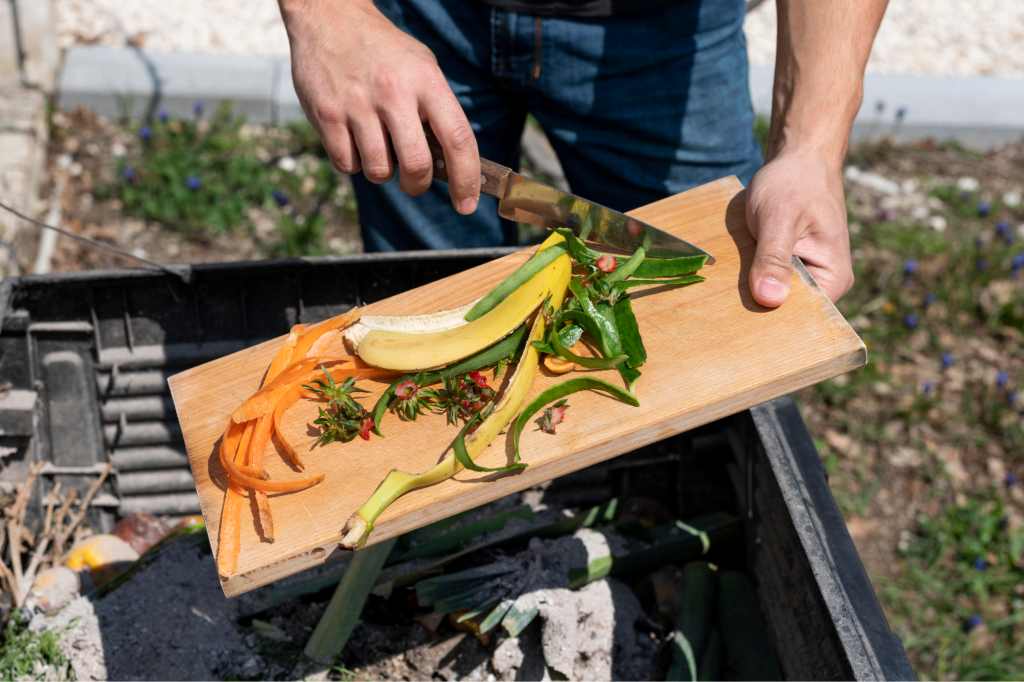Composting is a simple and effective way to reduce waste, enrich soil, and promote a more sustainable way of life. Yet, many people are unaware of the numerous benefits of composting and how easy it is to get started. In this blog post, we’ll explore the benefits of composting and provide practical tips for turning food scraps into nutrient-rich compost for your garden.
- Reduce Waste: Food waste is a significant issue worldwide, contributing to landfills and generating greenhouse gas emissions as it decomposes. Composting allows you to divert organic waste from landfills, reducing methane emissions and conserving valuable landfill space.
- Improve Soil Health: Compost is often referred to as “black gold” for its ability to enrich soil and enhance plant growth. By adding compost to your garden beds, you can improve soil structure, increase water retention, and provide essential nutrients for healthy plant growth.
- Reduce the Need for Chemical Fertilizers: Unlike chemical fertilizers, which can leach into waterways and harm the environment, compost provides a natural and sustainable source of nutrients for plants. By using compost in your garden, you can reduce or eliminate the need for synthetic fertilizers, promoting a more environmentally friendly approach to gardening.
- Encourage Biodiversity: Healthy soil is teeming with life, including beneficial microorganisms, earthworms, and other soil organisms. Compost provides a habitat and food source for these organisms, promoting biodiversity and creating a thriving ecosystem in your garden.
- Save Money: Composting is not only good for the environment but also for your wallet. By producing your own compost, you can save money on store-bought fertilizers and soil amendments while improving the health and productivity of your garden.
- Reduce Water Usage: Compost improves soil structure and water retention, allowing plants to better withstand drought conditions and reducing the need for frequent watering. By using compost in your garden, you can conserve water and promote sustainable water management practices.
- Minimize Pollution: When organic waste decomposes in landfills, it produces methane, a potent greenhouse gas that contributes to climate change. By composting food scraps and yard waste at home, you can reduce methane emissions and minimize your environmental impact.
- Promote Sustainable Living: Composting is a simple yet powerful way to practice sustainable living and reduce your carbon footprint. By taking responsibility for your organic waste and turning it into valuable compost, you can make a positive impact on the environment and inspire others to do the same.
Ready to start composting? All you need is a compost bin or pile, some organic waste, and a little time and patience. With a bit of effort, you can turn your food scraps into nutrient-rich compost that will nourish your garden and benefit the planet.


